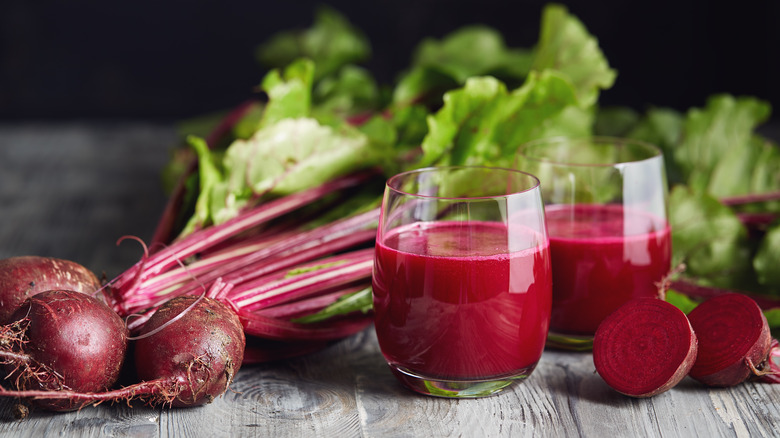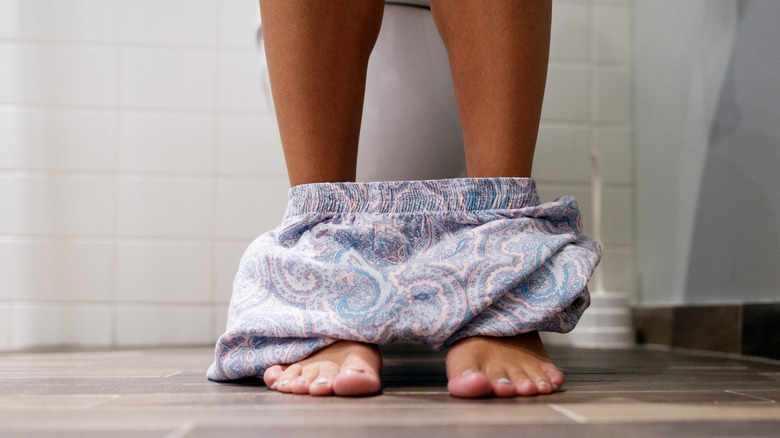Does Eating Too Many Beets Cause Red Urine?
Beets are about as good as it gets when it comes to nutritional value. As per the U.S. Department of Agriculture (USDA), just 1 cup of raw beets is packed with a host of vitamins and minerals including 21.8 milligrams of calcium, 31.3 milligrams of magnesium, 54.4 milligrams of phosphorus, and 442 milligrams of potassium.
"Beets are unique for their cardiovascular and heart health benefits," registered dietitian Sarah Thomsen Ferreira tells the Cleveland Clinic. "Due to a combination of compounds found in beets, they are able to enhance blood flow, improve the health of arteries, support lower homocysteine levels and reduce LDL cholesterol." But that's not all that beets have to offer us in terms of our health. They also have antioxidant and anti-inflammatory properties, which may help protect against certain health conditions such as cancer, obesity, asthma, and type 2 diabetes. Not only that, but beets are also rich in compounds called nitrates, which are thought to support healthy cognitive function.
Noted for their signature crimson color, beets can continue to leave their mark even after they've been consumed.
What is beeturia?
As much as 14% of the population experiences a condition known as beeturia, in which one's urine becomes tinted red after having eaten beets (via StatPearls). Ranging from a light shade of pink to a darker red hue, this urine discoloration can be traced back to a compound known as betanin, explains Healthline. It's betanin that's responsible for the vegetable's scarlet coloring. The compound gets broken down by the body as it journeys through the digestive tract. However, the presence of certain health conditions may hinder this process.
Rates of beeturia appear to be higher amongst those with malabsorptive disorders, according to research outlined in StatPearls. For example, as much as 45% of those with pernicious anemia are estimated to experience the condition. Similarly, those with low stomach acid may also be more susceptible to beeturia, as these individuals also experience difficulty breaking down nutrients, reports Healthline. Alternatively, the development of red-tinted urine following a helping of beets may point toward an iron deficiency. A 1999 study showed beeturia was present in up to 80% of iron-deficient anemia patients.
Noticing red pee in the toilet may be shocking at first glance, but experts emphasize that beeturia is considered a temporary condition that poses no risk to human health (via Healthline). However, if you find your urine is regularly turning red after eating beets, or if urine discoloration is accompanied by additional symptoms, be sure to consult with your physician.


